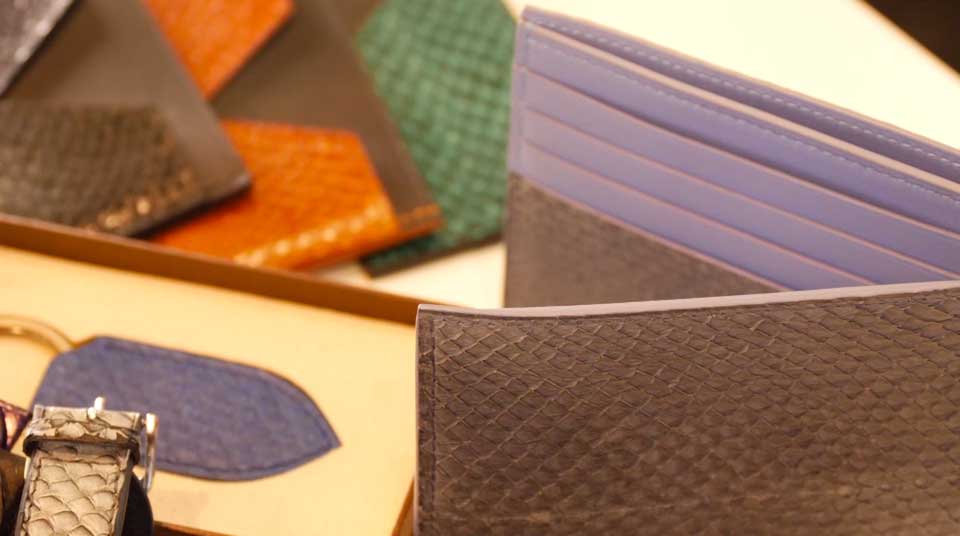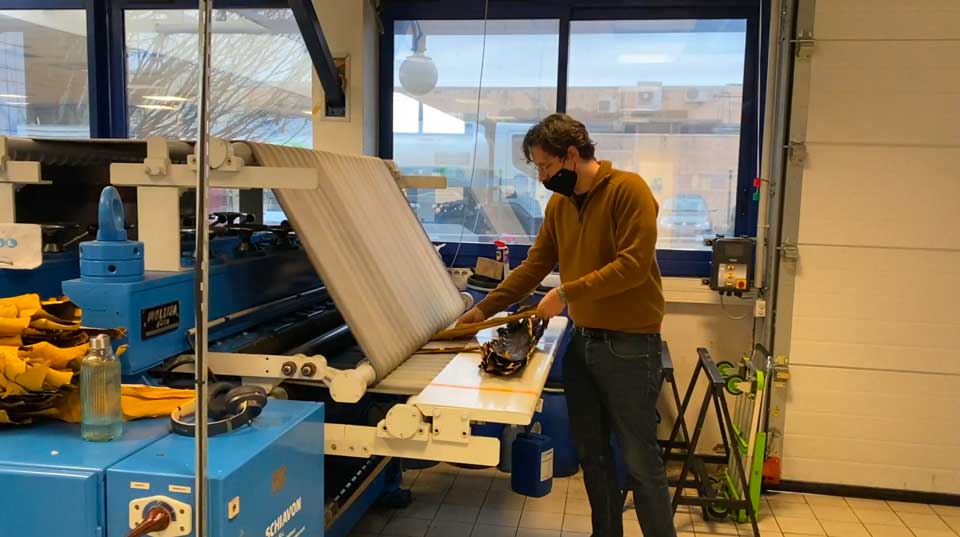Fashion brands embrace fur-free projects
In Italy, Armani has been fur-free since 2016. Gucci made headlines in October 2017 when it announced it would no longer use fur in its collections. Prada followed suit in 2020. Leading Paris-based fashion group Kering, which includes Saint Laurent, announced last September that it would stop using fur from the fall 2022 collection.
Fashion magazines join the fur-free revolution
Fashion magazines are getting behind the shift. Influential Paris-based Elle magazine announced last December that it would no longer feature fur products in any of its 43 international editions.
According to Constance Benqué, Elle International's CEO, fur no longer fits with the brand's values. In an interview with NHK, she said, "Banning fur allows us to raise awareness on this issue among our readers and fulfill our corporate social responsibility. It also helps to reinforce sustainable, innovative alternatives for the fashion industry."

Animal welfare goes mainstream
The animal welfare movement first gained prominence in England in the 1960s, when an activist exposed terrible living conditions in farms.
More recently, the movement has targeted the pet industry, putting it under pressure to clean up its act as well. The effort is producing results. France has moved to ban shops from selling cats and dogs from 2024 in a bid to reduce the number of animals that are bought and then abandoned.
Pet store owners argue the rule is unfair because it doesn't apply equally to online sales. But opinion polls show 75 percent of French people back the change.
Increasing consumer awareness
Young people today are more environmentally conscientious than previous generations. An opinion poll in France last January revealed that 89% of respondents oppose the trade of genuine fur products in the fashion industry.
Paris-based fashion journalist Inoue Elie says such convictions are forcing the industry to act.
"Generation Z – people born between the mid-to-late '90s and 2010s – are highly environmentally conscious and place great importance on eco-friendliness and ethical issues when choosing products," she says. "Fashion brands that want to attract this key future customer segment want to dispel the negative image of using the fur of killed animals."

Rapid progress in alternative materials
The industry is moving quickly to develop alternatives to fur and leather. Last year, Gucci created an animal-free luxury material and integrated it into products such as sneakers. It's made of a wood pulp compound that comes from sustainably managed forests, combined with a bio-based polyurethane from renewable sources.
Leather made from fish skin
Last February, a variety of innovative materials went on show at a trade fair near Paris. Two of the more unusual offerings were derived from cactus and pineapple. Another standout was a new kind of "leather" made from fish skin.

The material is the brainchild of Benjamin Malatrait, co-founder of French company Ictyos. Malatrait came up with the idea while thinking about ways to make use of fish skin discarded by sushi restaurants.
The leather is made by carefully washing salmon skin and adding a coloring agent. After it is dried, extra color is added to give more depth and then the material is placed in a softening machine. Malatrait says the resulting leather is durable enough to last for more than 10 years.
Ictyos has sold its products to nearly 1,400 customers around the world and is now in negotiations with major brands.

"We eat as much fish as meat in France and we throw away almost all the fish skin," says Malatrait. "We asked ourselves, 'Can't we repurpose this resource by transforming it into a material that will last over time?' We will continue to innovate. The idea is not just to develop salmon leather, but to develop a new leather every year because we eat different kinds of fish. In the future there will be a range of Ictyos leathers."
Other industries embrace change
The ideology guiding the animal welfare movement is also finding its way into other industries.
Swedish carmaker Volvo Cars announced last September that it would stop using leather in all new electric vehicle seats and replace it with sustainable materials. The automaker said that "being a progressive car maker means we need to address all areas of sustainability, not just CO2 emissions."
Fashion journalist Inoue says animal welfare is now considered fundamental to corporate social responsibility across many industries. "Commitment to animal welfare is now an absolute requirement. To show that they are not just creating an image, companies will be required to be more transparent about their production processes and to disseminate credible information."
As the range of animal-friendly products grows, so too does awareness around the issue. The shift means animal welfare could one day be a decisive factor in the way consumers shop.


